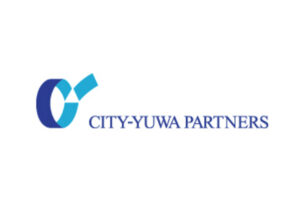The most recent national election in July 2025 dealt a severe defeat to the ruling coalition (Liberal Democratic Party and Komeito). One newspaper reported the result as reflecting anti-globalism reaching Japan, marked by a harsher attitude towards foreign people and centring national interests. Against this background, a review of the Act on the Review and Regulation of the Use of Real Estate Surrounding Important Facilities and on Remote Territorial Islands of 2021 (Important Land Survey Act) will be of interest for those following developments covered in this journal.
The Important Land Survey Act is aimed at reducing the risk of foreign capital acquiring or using lands in Japan for an inappropriate purpose. Given that the supplementary provisions of the act provide that, five years after the act comes into effect (2027), the government must examine its implementation, and take any measures found necessary based on the results of this review.
Purpose and key terms
To achieve the purpose of protecting Japan’s territorial waters and national security (article 1), the act introduces several important concepts including designated monitored areas and special monitored areas (see graphic below).
Monitoring zones
 Akira Yasukawa
Akira Yasukawa
Partner
City-Yuwa Partners
Tokyo
Tel: +81 3 6212 5665
Email: akira.yasukawa@city-yuwa.com
There are currently about 586 monitored areas and special monitored areas in total. The areas designated as monitored areas and special monitored areas can be confirmed on the Cabinet Office website at resum2.go.jp. After agreeing to the terms and conditions, a map of Japan will appear. By zooming in on any location, you can find monitored areas marked in blue and special monitored areas marked in red. Although the website is available only in Japanese, the authors believe foreign users can navigate this map with relative ease.
The government may periodically add or remove monitored areas and special monitored areas, so it is advisable for foreign investors engaging in real estate transactions in Japan (especially real estate with areas or floor areas of 200m² or more, for the notification obligations explained below) to check this website regularly.
Monitored areas
Survey and collection of information. The government is to review real estate use in monitored areas (article 6). The government may ask the relevant authority to provide information on the names, addresses, permanent domicile (or nationality), date of birth, contact information, and gender of users and related parties of such real estate (article 7).
The government may request users or related parties of real estate in monitored areas to provide reports or written material on the use of the property (article 8). Failing to provide a report or written material, or submitting a false report or material, are punishable by a fine not exceeding JPY300,000 (USD2,035) (article 27).
Recommendations and orders to the users of real estate in monitored areas. If the government finds that a user of real estate in a monitored area uses the property in a way that impedes the functions of important facilities or remote territorial islands, or if there is a clear risk that the user will do so, it may recommend that the user takes necessary measures to prevent the real estate being used in a way that interferes with their functions (article 9.1, see graphic above).
The following are examples of actions that may be considered impeding actions:
the construction of structures that interfere with the take-off and landing of aircraft operated by the Self-Defence Forces, or with radar operations; and
land alterations near territorial baselines that hinder the preservation of the low-water line. Whether an action constitutes the impeding action will be determined based on the specific circumstances of each individual case.
If a person who received a recommendation under the preceding paragraph fails to take the recommended action without justifiable grounds, the government may issue an order requiring that person to take the recommended action (article 9.2). Violating this order is punishable by imprisonment for not more than two years, or a fine not exceeding JPY2 million, or both (article 25).
Special monitored areas
Prior notification before execution of a purchase and sale agreement (PSA). Before executing a PSA for real estate in special monitored areas with land or floor areas not less than 200m², the parties must notify the prime minister in advance of the following matters (article 13.1, see graphic above). It should be noted that this notification obligation applies to both buyers and sellers.
In conjunction with recommendations and orders under the above-mentioned article 9.2, the prior notification functions as a trigger for the government to:
conduct an initial survey (article 13.4);
request users or related parties of real estate in monitored areas to provide reports or written materials on its use (articles 8 and 13.5); and
make recommendations and orders pursuant to the above-mentioned provision.
Such recommendations and orders may include stopping the anticipated transaction if the necessity arises.
Entering into a PSA without making this prior notification, or filing a false notification, is punishable by imprisonment for not more than six months, or a fine not exceeding JPY1 million (article 26).
Penalties
As mentioned in the relevant sections of this article, the following penalties apply (see graphic below).
If a corporation’s representative, agent, employee or worker violates any of these categories, both the individual offender and the corporation or individual they represent may be fined (article 28).
 CITY-YUWA PARTNERS
CITY-YUWA PARTNERS
Marunouchi Mitsui Building
2-2-2 Marunouchi, Chiyoda-ku
Tokyo 100-0005, Japan
Tel: +81 3 6212 5500
Fax: +81 3 6212 5700
Email: cy-info@city-yuwa.com
www.city-yuwa.com


AloJapan.com